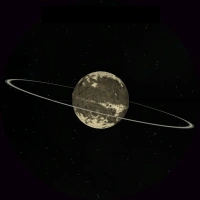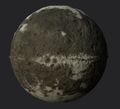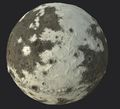Difference between revisions of "KSP2:Dres"
Mr. Kerbin (talk | contribs) m (→=Surface Research Locations) |
|||
| Line 26: | Line 26: | ||
| − | + | == Surface Research Locations == | |
Surface research locations include: | Surface research locations include: | ||
| Line 46: | Line 46: | ||
[[File:dres_visual.png|thumb|none|Dres visual map (as of v0.2.1.0)]] | [[File:dres_visual.png|thumb|none|Dres visual map (as of v0.2.1.0)]] | ||
[https://i.imgur.com/CZN8kA1.png Dres visual map (Imgur)] | [https://i.imgur.com/CZN8kA1.png Dres visual map (Imgur)] | ||
| − | |||
== Gallery == | == Gallery == | ||
Latest revision as of 21:37, 5 July 2024
← KSP1 version (test)
- Please leave this page here: I'm doing some tests to see if it is possible to separate KSP and KSP2 info in several pages. Thanks! Nazalassa (talk)
Dres is the fifth planet in the Kerbol System. It is located between Duna and Jool in a somewhat eccentric and inclined orbit. It is considered to be the Ceres analog for the game. It is similar to Moho and Eeloo in that it has no atmosphere and no natural satellites (aside from a ring system of asteroids). Dres has the least gravity of any planet in the Kerbol system. Dres is considered a dwarf planet because it "is content to 'hang out' with other space objects"; in other terms, it has asteroids in close proximity.
| (KSP2:Dres) | ||
| KSP2:Dres as seen from orbit. | ||
| Dwarf planet of Kerbol | ||
| Orbital Characteristics | ||
| Semi-major axis | 40 839 348 203 m [Note 1] | |
| Apoapsis | 46 761 053 692 m [Note 1] | |
| Periapsis | 34 917 642 714 m [Note 1] | |
| Orbital eccentricity | 0.145 | |
| Orbital inclination | 5 ° | |
| Argument of periapsis | 90 ° | |
| Longitude of the ascending node | 280 ° | |
| Mean anomaly | 3.14 rad (at 0s UT) | |
| Sidereal orbital period | 47 893 063 s | |
| 2 217 d 1 h 37 m 43.1 s | ||
| Synodic orbital period | 11 392 903.3 s | |
| Orbital velocity | 4 630 - 6 200 m/s | |
| Physical Characteristics | ||
| Equatorial radius | 138 000 m | |
| Equatorial circumference | 867 080 m | |
| Surface area | 2.3931396×1011 m2 | |
| Mass | 3.2190937×1020 kg | |
| Standard gravitational parameter | 2.1484489×1010 m3/s2 | |
| Density | 29 242.045 kg/m3 | |
| Surface gravity | 1.13 m/s2 (0.115 g) | |
| Escape velocity | 558.00 m/s | |
| Sidereal rotation period | 34 800.000 s | |
| 1 d 3 h 40 m 0 s | ||
| Solar day | 34 825.305 s | |
| 1 d 3 h 40 m 25.3 s | ||
| Sidereal rotational velocity | 24.916 m/s | |
| Synchronous orbit | 732.24 km | |
| Sphere of influence | 32 832 840 m [Note 1] | |
| Atmospheric Characteristics | ||
| Atmosphere present | No | |
| Scientific multiplier | ||
| Surface | 8 | |
| Splashed | N/A | |
| Near space | 7 | |
| Outer space | 6 | |
| Recovery | 6 | |
|
| ||
Contents
In-game Description
| “ | A dwarf planet, Dres has the gravitational pull to round itself out as it orbits the sun, but it doesn't rule its inclined, eccentric orbit like a proper planet. It is content to 'hang out' with other space objects, rather than tell them to become moons or get lost. Dres is also home to a lovely ring system and rad equatorial ridge! How unique! | ” |
Topography
As with some other planets and moons, the topography of Dres is significantly different in KSP2; This version of Dres sees the introduction of an equatorial ridge. The coloration is also much different, as most of the surface is now rifle green in color, with the exception of the bright vanilla polar regions and equatorial ridge.
Ring system
KSP2 sees the introduction of a ring system around Dres. These rings are similar in color to Dres' own bright vanilla polar regions and equatorial ridge. These rings are likely a replacement for the Drestroid belt.
Surface Research Locations
Surface research locations include:
- Craters
- Equatorial Ridge
- Eye of Dres
- Lowlands
- Highlands
Maps
Biomes
Visual map
Gallery
Changes
- 0.1.0
- Initial release



